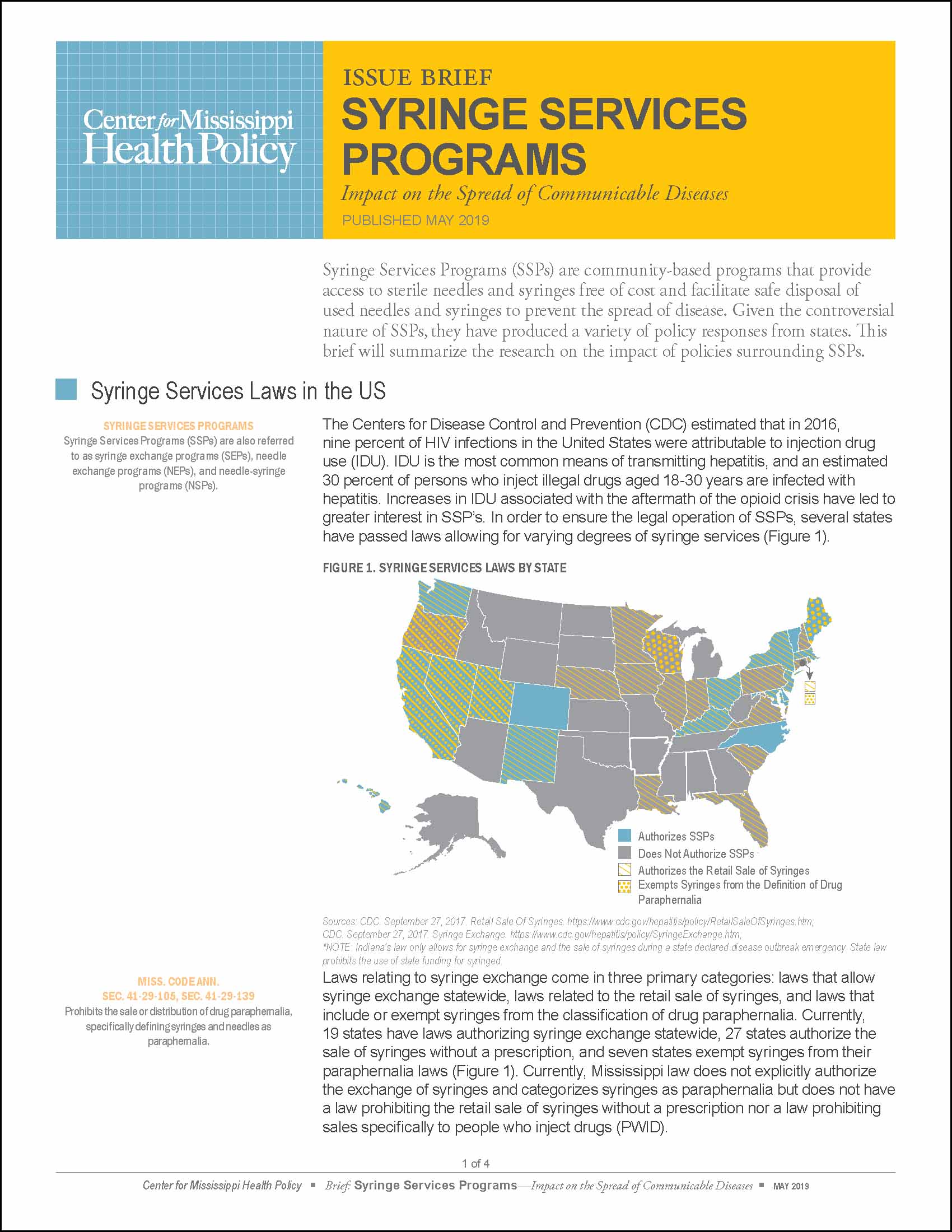Every year the Center for Mississippi Health Policy monitors trends in health insurance coverage in Mississippi, analyzing Census data compiled by the State Health Data Assistance Center (SHADAC). Using this data, we compile chartbooks that examine detailed demographic characteristics such as income, age, education, and work status for the various types of coverage and provide a profile of the uninsured. In addition, we publish a separate fact sheet presenting county-level data on uninsured adults using the data provided by Small … Read more...
Tag Archives: Mississippi
Uninsured Adults 2020
This fact sheet provides the number and percentage of adults ages 18 – 64 without
health insurance at the county level in Mississippi. Under the Affordable Care
Act, adults from households with incomes of 400 percent of the federal poverty
threshold (FPL) or less qualify for federal support (subsidies) to buy health
insurance through a Health Insurance Exchange. Adults with household incomes
of 138 percent or less of FPL would qualify for Medicaid coverage if the state
chose to the … Read more...
How the Medical Loss Ratio Impacts Mississippi
by Zach Smith
The Medical Loss Ratio (MLR) provision, an often-forgotten part of the Affordable Care Act behind more well-known provisions, such as individuals being allowed access to insurance with a pre-existing condition or individuals being allowed to stay on their parent’s insurance plan until age 26, may have more impact in 2019 than prior years. The MLR provision requires insurance companies that cover individuals and small businesses to spend at least 80% (85% in large group plans) of their … Read more...
Contraceptive Access, Choice, & Utilization: A Survey of Mississippi Women
Women in Mississippi experience high rates of unintended pregnancy, which can be associated with the use of less effective methods of contraception. In an effort to better understand how Mississippians access birth control generally, the Center for Mississippi Health Policy commissioned a survey of Mississippi women of reproductive age to understand what factors influence women’s choice of birth control methods and what barriers, if any, limit them in obtaining the method of their choice.
Survey respondents were recruited from … Read more...
Syringe Services Programs: Impact on the Spread of Communicable Diseases
Syringe Services Programs (SSPs) are community-based programs that provide access free of charge to sterile needles and syringes and facilitate safe disposal of used needles and syringes to prevent the spread of disease. Increases in injection drug use associated with the aftermath of the opioid crisis have led to greater interest in SSPs by federal and state policymakers.
While there is a growing body of research indicating that SSPs can be effective in reducing the spread of infectious diseases and … Read more...


